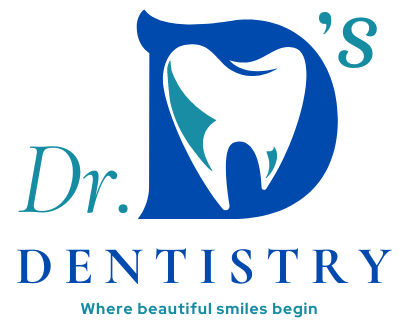
Healthy Teeth Maintenance
Maintaining healthy teeth is essential for your overall well-being. Not only does a bright, healthy smile boost your confidence, but good oral hygiene can prevent a host of health problems. Let’s dive into the world of dental care and explore how you can keep your pearly whites in top shape.
The Importance of Oral Health
Why Oral Health Matters
Oral health is more than just having a dazzling smile. It’s a crucial part of your overall health. Poor oral hygiene can lead to dental issues such as cavities, gum disease, and tooth loss. But it doesn’t stop there. Research has shown a strong connection between oral health and systemic health conditions like heart disease and diabetes.
Connection to Overall Health
Your mouth is the gateway to your body. Harmful bacteria from dental plaque can enter your bloodstream, potentially causing infections and exacerbating other health conditions. Therefore, maintaining good oral hygiene is not just about keeping your teeth clean but also about protecting your overall health.
Daily Oral Hygiene Practices
Brushing Techniques
One of the cornerstones of oral hygiene is proper brushing. But how you brush your teeth is just as important as how often you brush them.
Choosing the Right Toothbrush
Choose a toothbrush with soft bristles that can effectively clean your teeth without damaging your gums. Whether you opt for a manual or an electric toothbrush, ensure it’s the right size and shape to reach all areas of your mouth.
Correct Brushing Method
Hold your toothbrush at a 45-degree angle to your gums and use gentle, circular motions. Make sure to brush all surfaces of your teeth – the outer, inner, and chewing surfaces. Don’t forget to brush your tongue to remove bacteria and keep your breath fresh.
Flossing Fundamentals
Brushing alone isn’t enough to remove all the plaque and food particles from between your teeth. That’s where flossing comes in.
Types of Floss
There are various types of floss available, including waxed, unwaxed, dental tape, and floss picks. Choose the one that feels most comfortable for you.
Proper Flossing Technique
Use about 18 inches of floss, winding most of it around your middle fingers, and leave an inch or two to work with. Gently slide the floss between your teeth, following the curve of each tooth and going beneath the gumline. Use a clean section of floss for each tooth.
Mouthwash Benefits
Using mouthwash can be a beneficial addition to your oral hygiene routine, helping to kill bacteria and freshen your breath.
Choosing the Right Mouthwash
There are different types of mouthwash designed for various purposes, such as antibacterial mouthwash for fighting plaque and fluoride mouthwash for strengthening teeth. Choose one that suits your needs.
How to Use Mouthwash Effectively
Pour the recommended amount into a cup, swish it around your mouth for about 30 seconds, and then spit it out. Avoid eating or drinking for at least 30 minutes afterward to allow the mouthwash to work effectively.
Diet and Oral Health
Foods That Promote Healthy Teeth
A balanced diet rich in vitamins and minerals is crucial for maintaining healthy teeth. Foods like dairy products, leafy greens, nuts, and fish are excellent for your teeth as they contain calcium, phosphates, and vitamin D, which are vital for dental health.
Foods to Avoid
Sugary and acidic foods can harm your teeth by eroding the enamel and promoting cavities. Limit your intake of sweets, soda, and citrus fruits, and make sure to rinse your mouth with water after consuming them.
The Role of Hydration
Drinking plenty of water helps wash away food particles and bacteria, keeping your mouth clean. Water also helps produce saliva, which is essential for neutralizing acids and preventing tooth decay.
Regular Dental Checkups
Importance of Routine Visits
Regular dental checkups are crucial for detecting and preventing dental problems early. Your dentist can identify issues that you might not notice and provide treatments to keep your teeth and gums healthy.
What to Expect During a Checkup
A routine dental checkup typically includes a thorough cleaning, an examination of your teeth and gums, and sometimes X-rays to detect any underlying issues. Your dentist will also check for signs of oral cancer and other health conditions.
Finding the Right Dentist
Choose a dentist who makes you feel comfortable and whose practice is conveniently located. Ask for recommendations from friends and family, and read online reviews to find a reputable dentist.
Dealing with Common Dental Issues
Tooth Decay
Tooth decay, also known as cavities, is a common dental issue caused by plaque buildup and poor oral hygiene.
Causes and Prevention
The primary cause of tooth decay is the consumption of sugary and starchy foods, which produce acids that erode the enamel. Brushing twice a day, flossing daily, and reducing sugar intake can help prevent cavities.
Treatment Options
Treatment for tooth decay includes fillings, crowns, and in severe cases, root canals. Your dentist will determine the best treatment based on the severity of the decay.
Gum Disease
Gum disease, or periodontal disease, affects the tissues surrounding your teeth and can lead to tooth loss if untreated.
Signs and Symptoms
Common signs of gum disease include red, swollen, and bleeding gums, persistent bad breath, and loose teeth. Regular dental checkups can help detect gum disease early.
Prevention and Treatment
Good oral hygiene, including brushing and flossing, is key to preventing gum disease. Treatment may involve professional cleanings, scaling and root planing, and in advanced cases, surgery.
Tooth Sensitivity
Tooth sensitivity can cause discomfort when consuming hot, cold, sweet, or acidic foods and drinks.
Causes and Solutions
Sensitivity can be caused by enamel erosion, gum recession, or exposed dentin. Using a toothpaste designed for sensitive teeth, avoiding acidic foods, and practicing good oral hygiene can help reduce sensitivity.
Advanced Dental Care
Whitening Treatments
If you’re looking to brighten your smile, there are several whitening treatments available, from over-the-counter products to professional in-office treatments.
Orthodontic Solutions
Orthodontic treatments, such as braces and clear aligners, can correct misaligned teeth and improve your bite, enhancing both function and appearance.
Cosmetic Dentistry
Cosmetic dentistry includes procedures like veneers, bonding, and contouring to improve the appearance of your teeth and smile.
Myths and Facts About Dental Care
Common Misconceptions
There are many myths about dental care, such as “If my teeth don’t hurt, they are healthy” and “Sugar-free drinks are safe for teeth.” Understanding the facts can help you make better decisions about your oral health.
Dental Care Facts
Regular brushing and flossing, combined with a healthy diet and regular dental checkups, are the best ways to maintain healthy teeth. Dental health is an ongoing process that requires consistent care.
Conclusion
Maintaining healthy teeth requires a combination of good daily habits, a healthy diet, and regular dental checkups. By following these guidelines, you can enjoy a beautiful, healthy smile for years to come.
FAQs
How often should I brush my teeth?
You should brush your teeth at least twice a day – once in the morning and once before bed. Brushing after meals is also beneficial.
Is flossing really necessary?
Yes, flossing is essential


